

Discover more from The Jewish Table
Jeweled Roasted Salmon with Herbs
Plus: The Four Questions with Bonnie Stern and Anna Rupert + Monthly Shabbat Menus!
Hello The Jewish Table Readers,
This week’s newsletter is public, which means all 5,632 (and counting) of you are here today! If you’d told me back when I first started thinking about launching a Jewish food newsletter that more than 5,000 people would be interested in taking part in the experiment with me…well, I would’ve given you quite the side eye. But almost two years later, I’m sure glad you’re here.
There’s a lot of great stuff packed into today’s letter, including a recipe for Jeweled Roasted Salmon with Herbs, and a The Four Questions interview with the recipe’s authors, Bonnie Stern and Anna Rupert.
But before we get into all that, I am thrilled to announce a brand new feature of The Jewish Table for paid subscribers: Monthly Shabbat Dinner Menus.
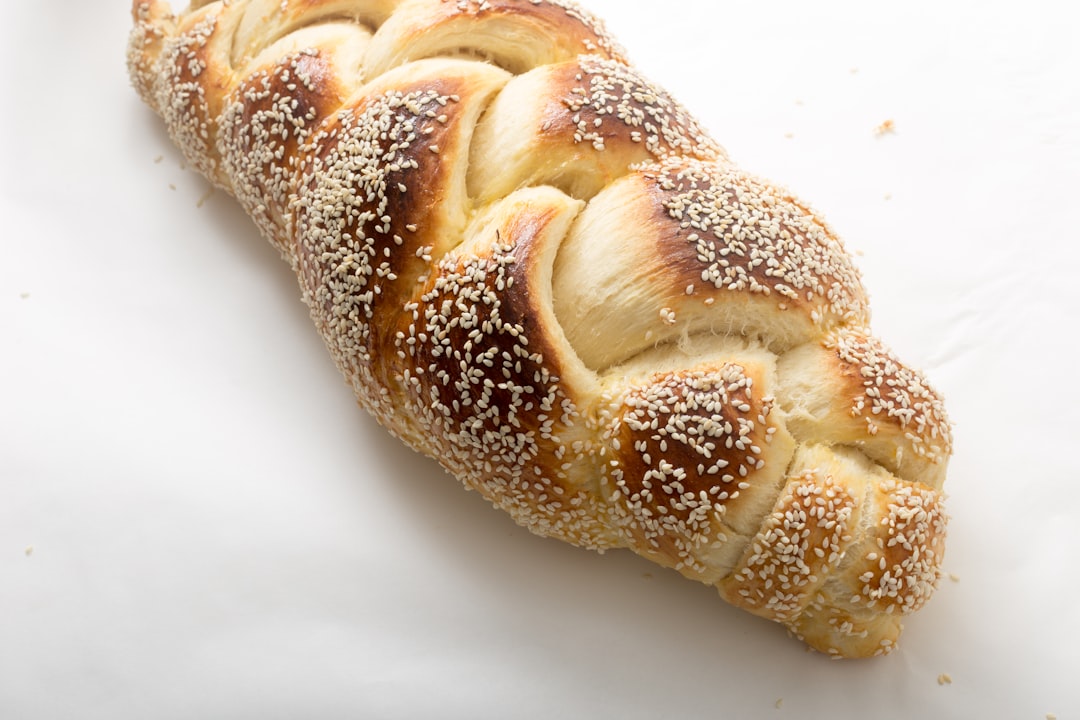
Coming Soon: Shabbat Dinner Menus (with shopping lists!)
A couple of weeks ago, I asked what kind of content you wanted to see in The Jewish Table in 2023, and several of you asked for help with Shabbat dinner planning. (Which, duh! Why wasn’t I doing that all along?!)
Starting next week, I will begin sharing monthly Shabbat dinner menus for 6-8 people (with recipe links and a shopping list). You can make the menu as-is, double it as necessary, or pick and choose dishes that look good to you. Some of the menus will skew traditional Ashkenazi with a twist, some will be Sephardi-inspired, and some will feature other cuisines. Many of the menus will be pulled straight from my own Shabbat table, and others will feature a mashup of recipes (both mine and from other sources) that I love. A few of you asked for vegetarian and/or gluten free-friendly menus, so I will periodically sprinkle those into the mix.
These Shabbat menus will be for The Jewish Table’s paid subscriber community, so if you want to make sure you have access to them, consider switching to a paid subscription. In the meantime, I have one last question for the group: What day of the week would be most helpful for a Shabbat dinner menu to drop? I’m thinking Wednesday, but let me know if you’d rather it come earlier or later in the week (probably not later, right?). Let me know in the comments.
Jeweled Roasted Salmon With Herbs
This week’s recipe, which comes from the book Don’t Worry, Just Cook by Bonnie Stern and Anna Rupert (more on them below!) highlights my favorite style of globally-influenced cooking. It takes something simple like roasted salmon and dresses it up with a spectacular rainbow of fresh herbs, fruit, and nuts inspired by morasa polo (aka Persian jeweled rice). The recipe is not traditional, per se, but it honors tradition while creating something new.
So what is jeweled rice? In Persian cuisine, rice itself is considered as precious as gemstones. As the Iranian-American food writer, Naz Deravian, writes in her cookbook Bottom of the Pot: “‘It begins with rice. It always has.” And later, “…every grain of rice should be separate, long, fluffy, and shine on its own. Each grain of rice a jewel scattered across the platter.”
Of course some rice dishes sparkle even more than others. Morasa polo, which is commonly served at weddings and other festive celebrations, folds a colorful bevy of mix-ins into basmati rice—everything from pistachios and almonds to golden raisins, barberries, and candied orange peel. Morasa polo has an essence of regality. It is a treasure chest, cracked open and glinting.
In Don’t Worry, Just Cook, Stern and Rupert give this same royal treatment to salmon, and the results are stunning. It so simple to make, and you don’t need an expert hand with garnishing or food styling to make it gorgeous. There’s just so much visual richness going on with the garden of fresh herbs, the little pomegranate rubies, emerald pistachios, and glistening citrus. It is a dish that dresses itself.
If you don’t eat fish, you could just as easily top a cooked farro or quinoa salad with the herb and citrus topping, and have a beautiful side dish or vegetarian main on your hands. But for a fresh and festive dinner that really shines (Valentine’s Day is next week, just saying!), it is hard to beat.
Jeweled Roasted Salmon With Herbs
Recipe reprinted and adapted slightly, with permission, from Don’t Worry, Just Cook by Bonnie Stern and Anna Rupert. Prep note: Chop the fresh herbs, pomegranate seeds (or blackberries), and nuts, and segment the oranges before you start roasting the fish, so they are ready when you need them.
Serves 6 to 8
For the Salmon:
2 1/2 pounds (1.25 kg) boneless, skinless salmon fillets (you can also make this dish with one large piece of salmon, adjusting the cooking time up a bit)
3 tablespoons extra-virgin olive oil
1 tablespoon honey
1 teaspoon kosher salt
1/4 teaspoon freshly ground pepper
1 tablespoon grated lemon or lime zest
Fresh thyme sprigs, for topping
For the Tahini-Yogurt
1/3 cup (75 g) well-stirred tahini
1/3 cup (75 g) plain Greek yogurt or labneh
1 tablespoon fresh lemon juice
1/2 teaspoon kosher salt, plus more as needed
For the Topping:
1 packed cup (20 g) fresh herbs (e.g. cilantro, parsley, dill, or mint), roughly chopped or torn
Kosher salt and freshly ground black pepper
1 tablespoon grated orange zest
1/3 cup (60 g) pomegranate seeds (I used fresh blackberries because the pomegranates near me were $6.99 each!)
1/4 cup (35 g) chopped pistachios
2-3 medium oranges, peeled and segmented (like this)
Extra-virgin olive oil and dried rose petals, for serving, optional (I skipped the rose petals, but if you have them they’d be lovely!)
Make the Salmon: Place the salmon fillets on 1 or 2 baking sheets lined with parchment paper. Combine the olive oil with the honey, salt, black pepper, and citrus zest. Rub the mixture into the salmon fillets, top with the sprigs of fresh thyme, and let it rest at room temperature for up to 30 minutes, (or for longer in the refrigerator).
While the fish marinates, preheat the oven to 425°F. Roast the salmon for 10 to 15 minutes, until cooked through, or until an instant-read thermometer registers 140-145°F when inserted into the thickest part of the fish. Remove and discard the sprigs of thyme.
Make the yogurt-tahini sauce: Whisk together the tahini, yogurt, lemon juice, and salt in a bowl until thick and smooth. Taste and add more salt, if needed. Dollop over the roasted salmon, as desired.
For the jewel topping, sprinkle the salmon with the chopped herbs, plus a little salt, black pepper, and the orange zest. Top with the pomegranate seeds, pistachios, and orange segments. Drizzle with a little olive oil and sprinkle with dried rose petals, if using.
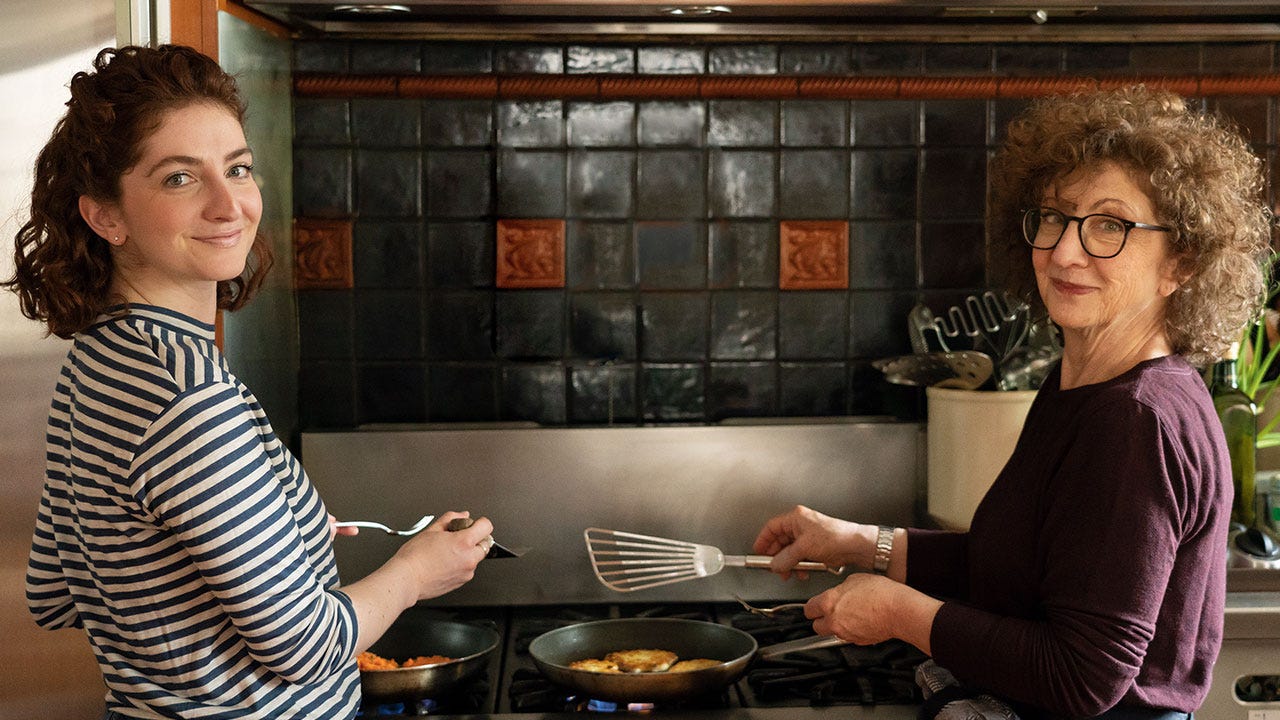
The Four Questions: with Bonnie Stern and Anna Rupert of Don’t Worry, Just Cook
One of my top 5 Shabbat meals (yes, ever!) was the one I ate at Bonnie Stern’s table. Yoshie and I were visiting Toronto and lucked into an invite at the home of Bonnie and her husband Ray Rupert. I knew Bonnie, who is a celebrated Canadian food writer, cookbook author many times over, and longtime owner of a beloved cooking school, professionally. But after that meal, which featured the most perfect, pillowy challah, a next-level brisket, and an insanely gorgeous, berry and fresh fig-topped pavlova (as well as lovely and spirited conversation!), she felt like a true friend.
Bonnie’s newest cookbook Don’t Worry, Just Cook, is particularly special because she wrote it in collaboration with her daughter, Anna Rupert. Anna is a speech pathologist by day and her mother’s long-time sous chef, and watching the two of them cook together is the sweetest. The book is filled with great recipes (including many Jewishly-inspired dishes), but is also infused with lessons about how to stress less in the kitchen and enjoy cooking for what it really is: a chance to connect with the people you love.
God willing, the next time we are in Toronto, Bonnie and Ray will invite us over for dinner again. (we’ll bring wine!) But until then, it was a pleasure to speak with Bonnie and Anna about their perspective on Jewish food, and how their own relationship evolved over the course of writing a book together.
What is your relationship to Jewish food, and how has it changed over time?
Bonnie: We all come from a context, and my context is Jewish food and Jewish cooking. We have this huge family where we have always had seders and Hanukkah parties every year with up to 100 people, and that feels like the basis of all my experience with food. And so I would say my relationship to Jewish food is all good - even though I don't like all Jewish food!
I’ll also add that when I started going to Israel twenty five years ago, I learned so much more about what Jewish food is to different people. In Israel there are people from all over the world, especially other Middle Eastern countries, bringing with them so many different flavors and spices (and colours!) and ways of making different dishes. I’ve completely fallen in love with it, and it’s become a big part of our family’s celebrations.
What is your earliest memory of cooking together?
Bonnie: I remember cooking with Anna a lot when she was younger. But one specific memory is with Jacques Pepin’s plum tarts. I made the dough, and Anna and my son Mark rolled it out. The next step was to cut up the plums, but they took a whole plum and put it right on the pastry before I could tell them what to do. They reinvented it. They did it their way. And it was so cute.
Anna: My earliest memory being involved in the cooking process was making this creation we developed called “surprise cookies.” We'd walk to the corner store and my brother and I would get to pick a few different chocolate bars. (Warning: this is not gourmet cooking!) We'd break them into pieces and hide different types of chocolate bars in the middle of the cookie and then when you ate them you didn't know which one you'd get. It led to lots of cookie eating. I can still feel how exciting it was to eat them when they came out of the oven.
What surprised you most about the process of collaborating on Don't Worry, Just Cook?
Bonnie: Everything. That Anna ended up being much more involved than we originally thought. She edited stories and recipes, ran photoshoots, made decisions and followed up on everything. She is an expert in her own field of speech pathology, but she brought her management skills into this process in a way that was so helpful.
Anna: How much work it was—not the collaboration, but the whole process. It gave me very different insight into what my mom's career and work life must have been like—running a business, and being a mom (and the millions of things that go along with that), and writing thirteen cookbooks at the same time. I was also surprised by how much we relied on each other throughout the whole process. We've always been close, but the process actually made us closer.
Don't Worry Just Cook isn't exclusively focused on Jewish food, but your family's Jewish story is woven throughout. How much does Jewish tradition inform your approach to cooking?
Bonnie: I think Jewish tradition informs my cooking tremendously. I've always felt that I wanted some way of helping people in my life. I come from a family full of social workers and doctors and people from all sorts of helping professions. When I started cooking professionally, many people still thought cooking was just a chore. I felt that I could make it fun and teach people how easy and joyful it could be. That it's something to celebrate. And that I've felt has come from my Jewish upbringing. I was always so shy, and it wasn't until I started cooking that I felt I had something to offer in that regard.
Anna: I would say that Jewish tradition informs my cooking in that my experience of Jewish cooking has always been about everything my mom referenced before. It’s about family, connection, the process and how it makes you and other people feel. It's such a huge part of my life and a huge and important part of life in general.
Recent Newsletters
ICYMI, here are some of recent The Jewish Table newsletters that I especially enjoyed - and I hope you do too!
Guatemalan Chicken Tagine - a delicious recipe + a look into Guatemala’s evolving Jewish community.
Homemade Raisin Bread, plus a deep dive into the history (Jewish and otherwise) of the New York City icon, Chock Full o’Nuts.
Miso Mushroom Barley Soup - I’ve been making this recipe on repeat and it sounds like some of you have too!
Middle Eastern Cabbage and Carrot Slaw - where I make the case that slaws should be a star of winter (rather than summer) cooking!
How to Help Turkish and Syrian Earthquake Victims
I’ve been watching with absolute horror as the news unfolds in the aftermath of this week’s devastating earthquakes in Turkey and Syria. And like many of us, I’ve been looking for ways to support the victims.
I trust reporter Mosheh Oinounou (whom I’ve interviewed for this newsletter) as a source of carefully-curated news and information. So I’m grateful for the list he put together of organizations that are doing rescue and relief work. If you are able to join me in making a donation (however big or small), it will go a long way to support their work.
With an aching heart, I’m sending blessings and strength to everyone on the ground, and praying for the most rescues possible.
Subscribe to The Jewish Table
recipes + stories from the world of jewish food, by leah koenig




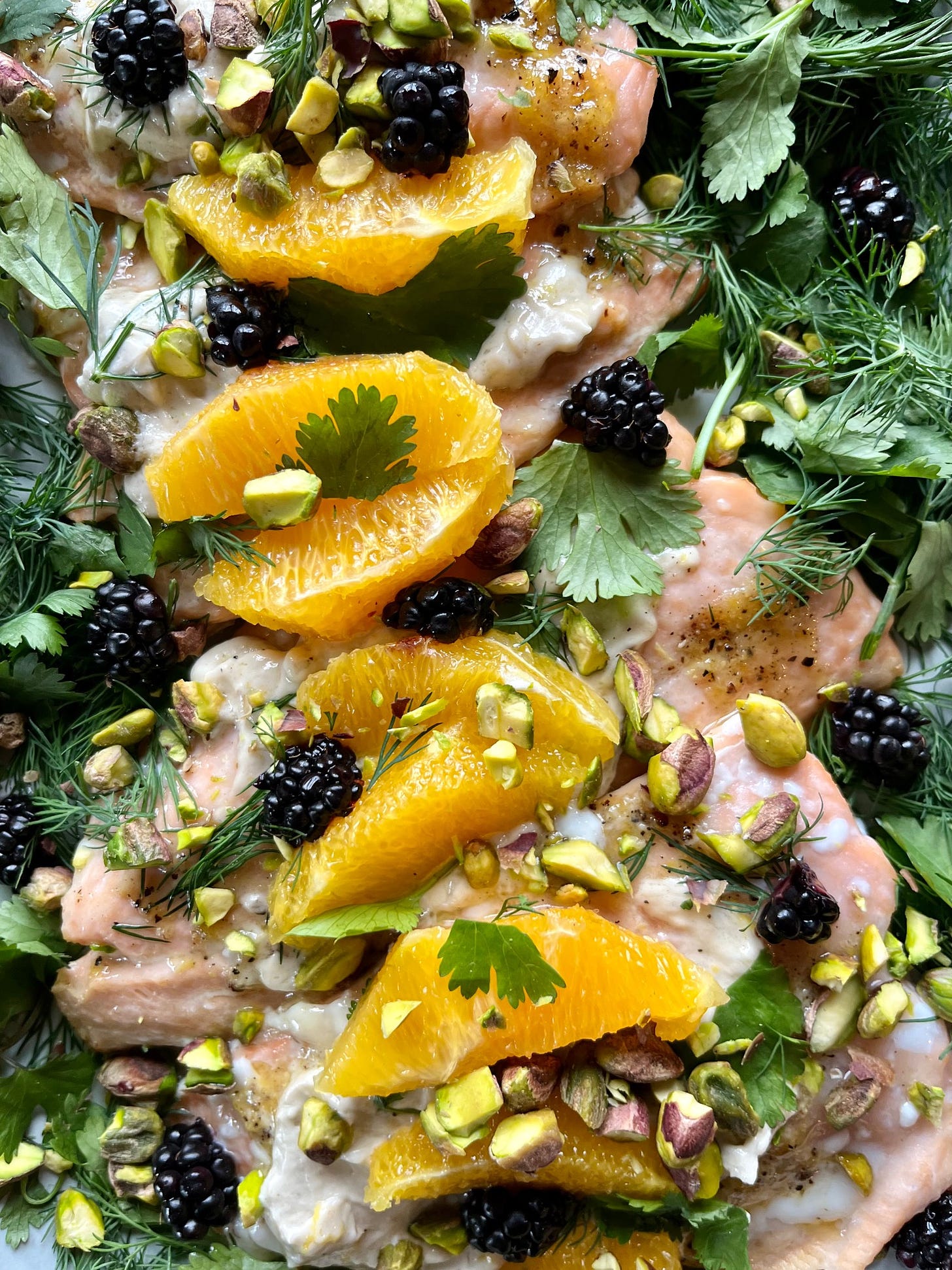
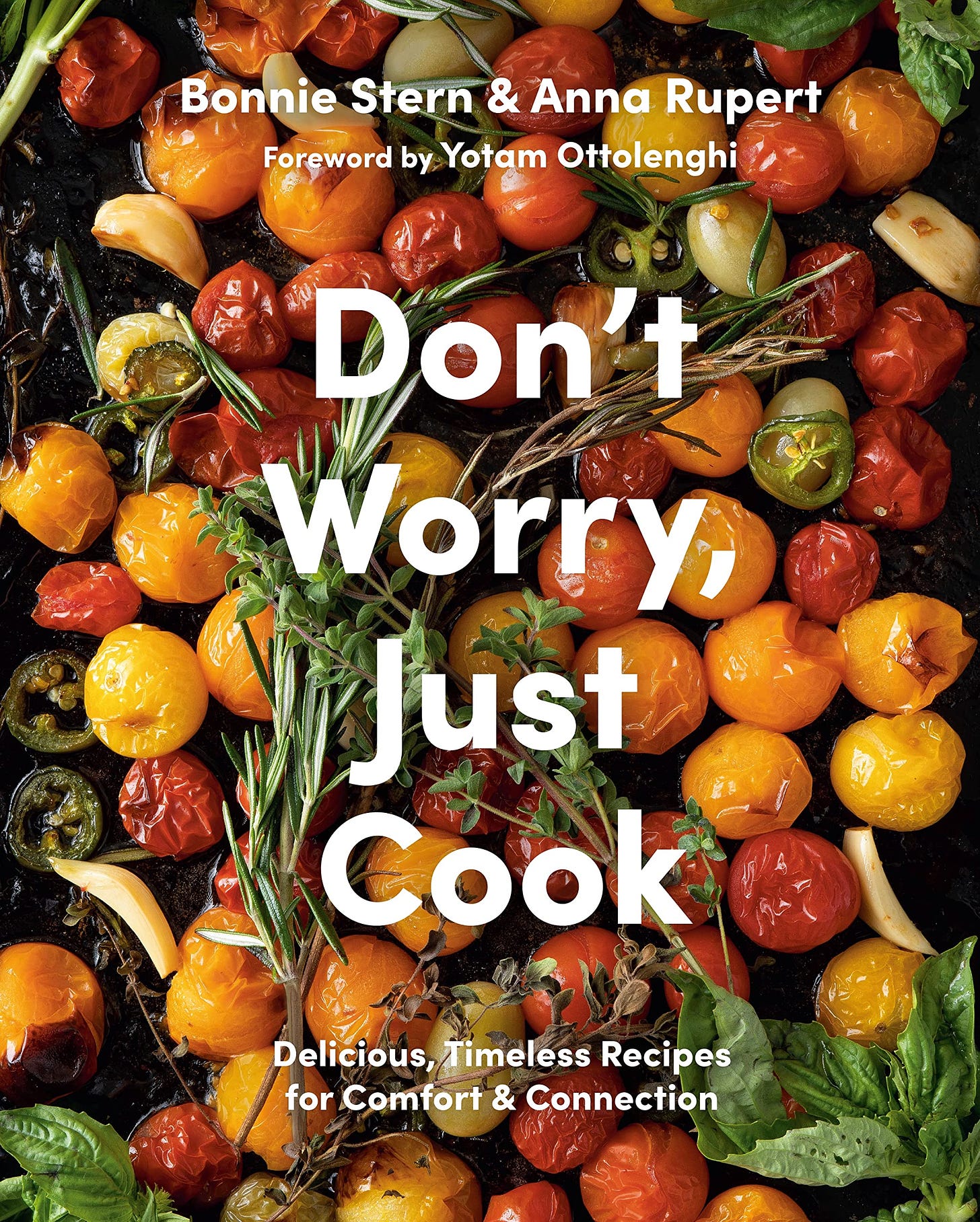
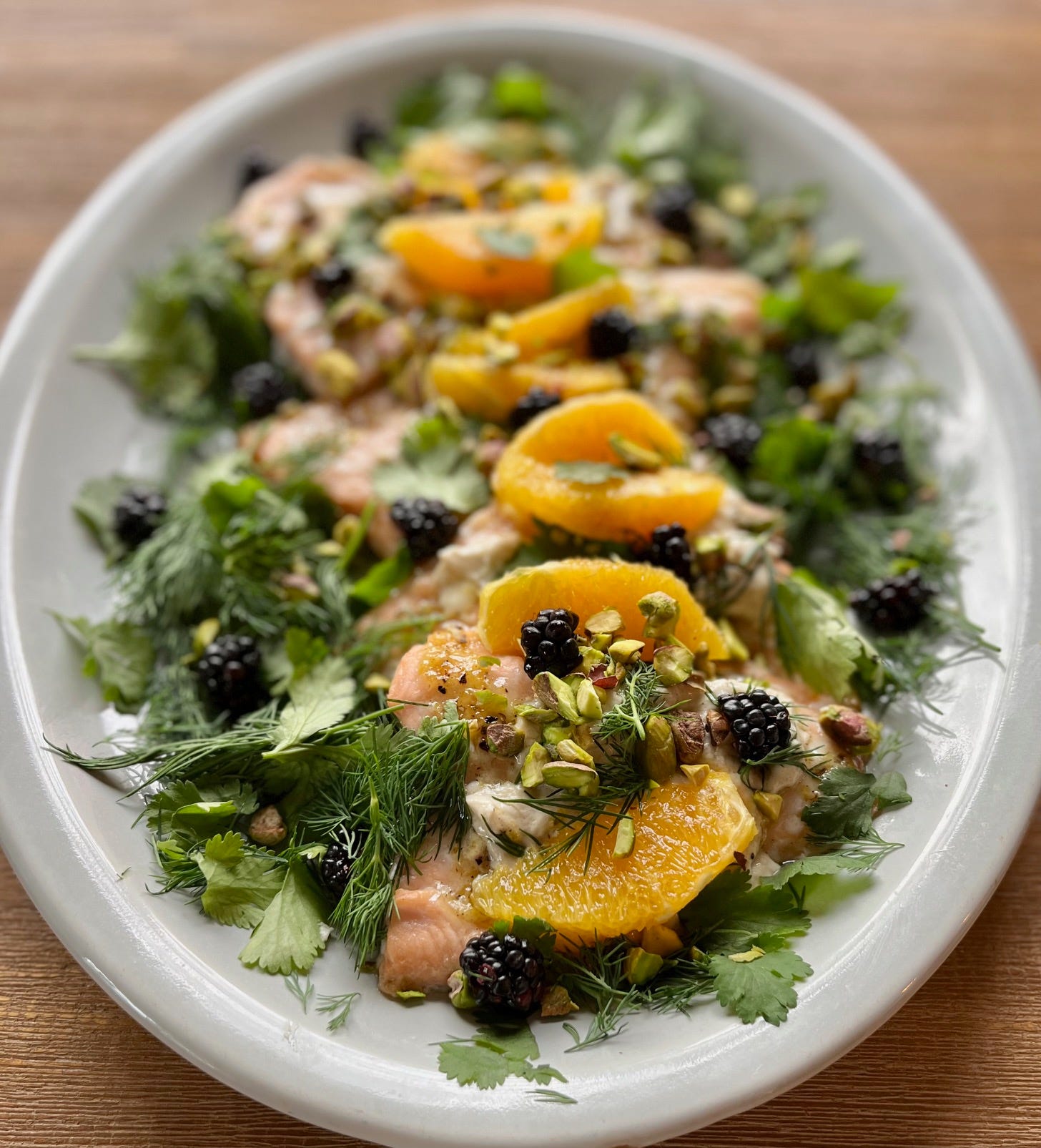
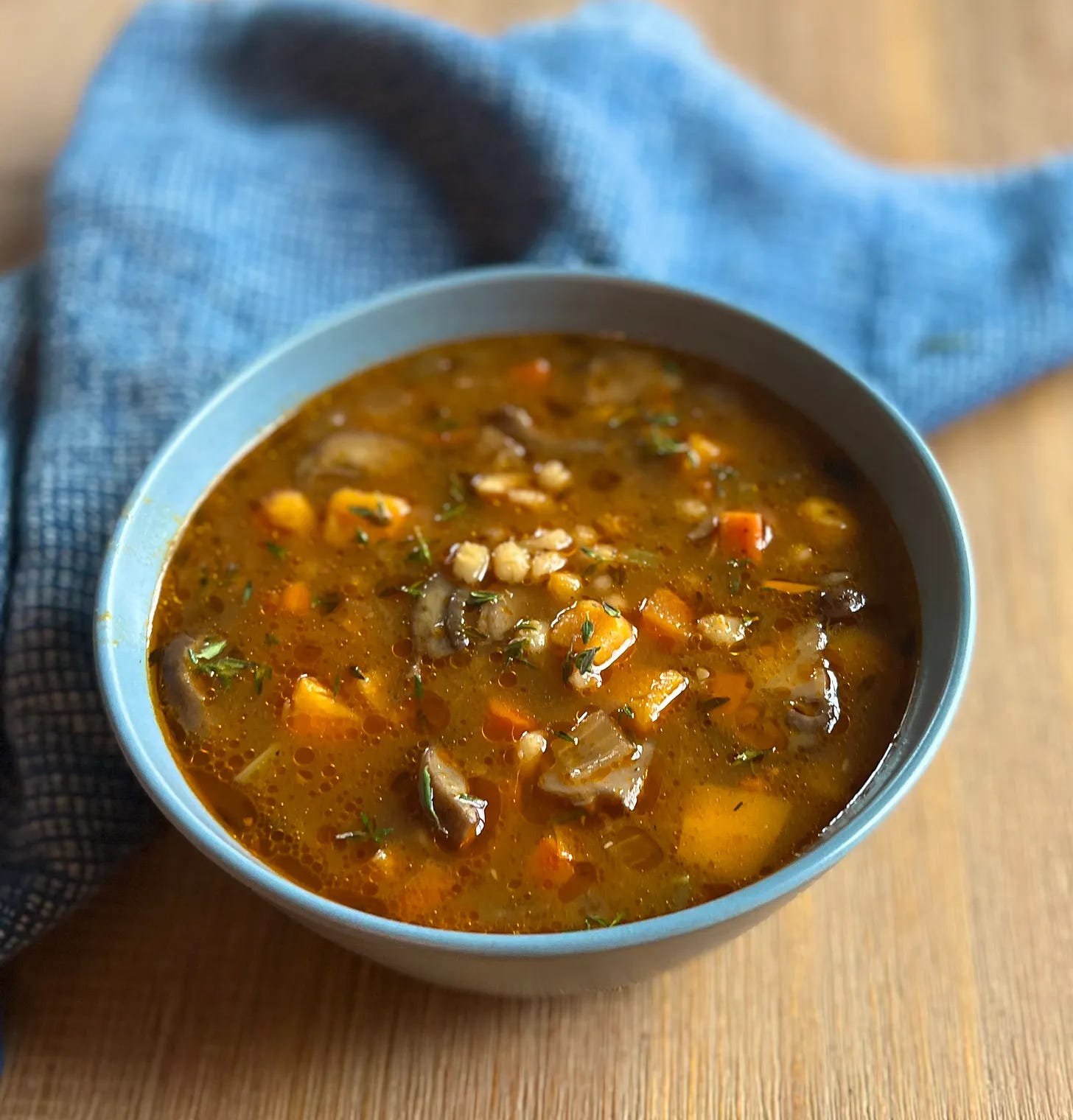








This is DELICIOUS! So much easier (and faster!) than it seems like it will be from the beautiful and multilayered end result. Loved every bite. A definite keeper!
What do you think about making this recipe with chicken instead of salmon? Obviously not kosher with dairy yogurt, but the protein preparation? Thoughts?